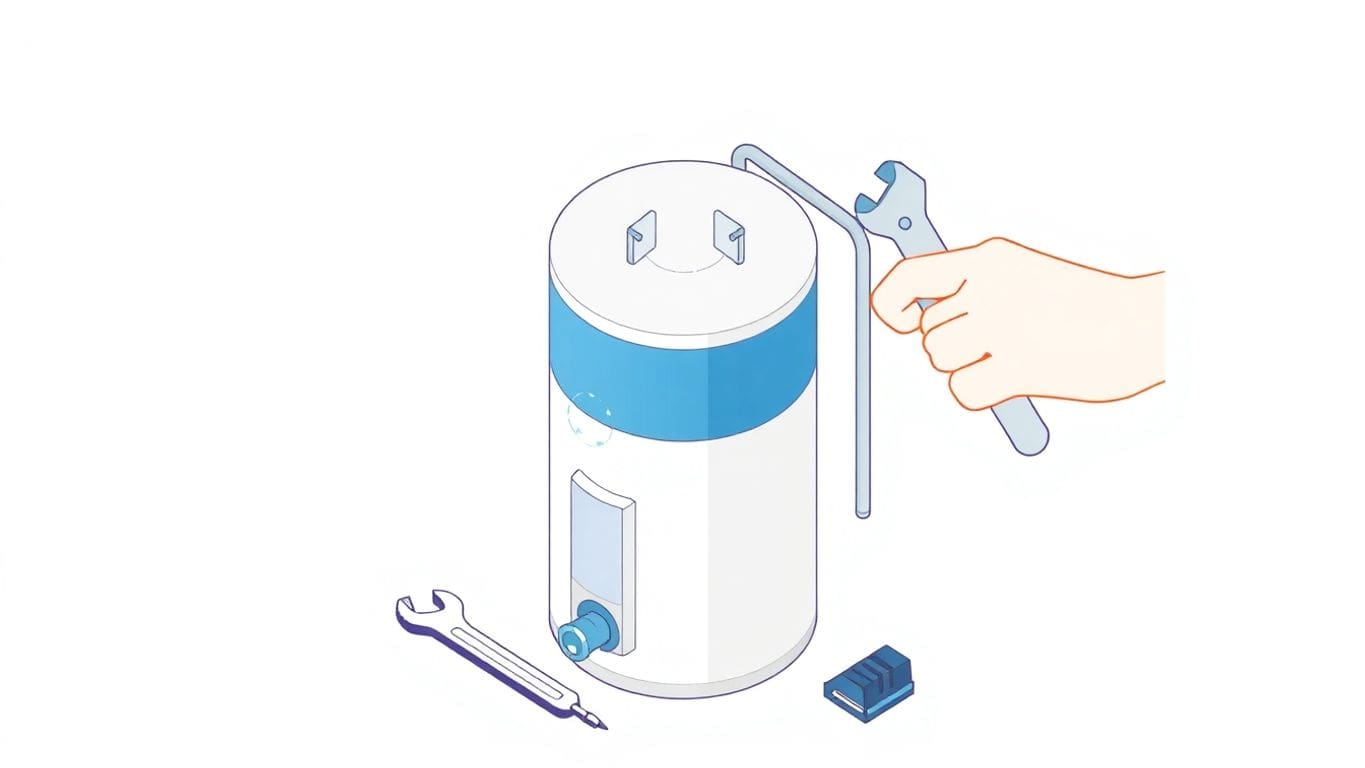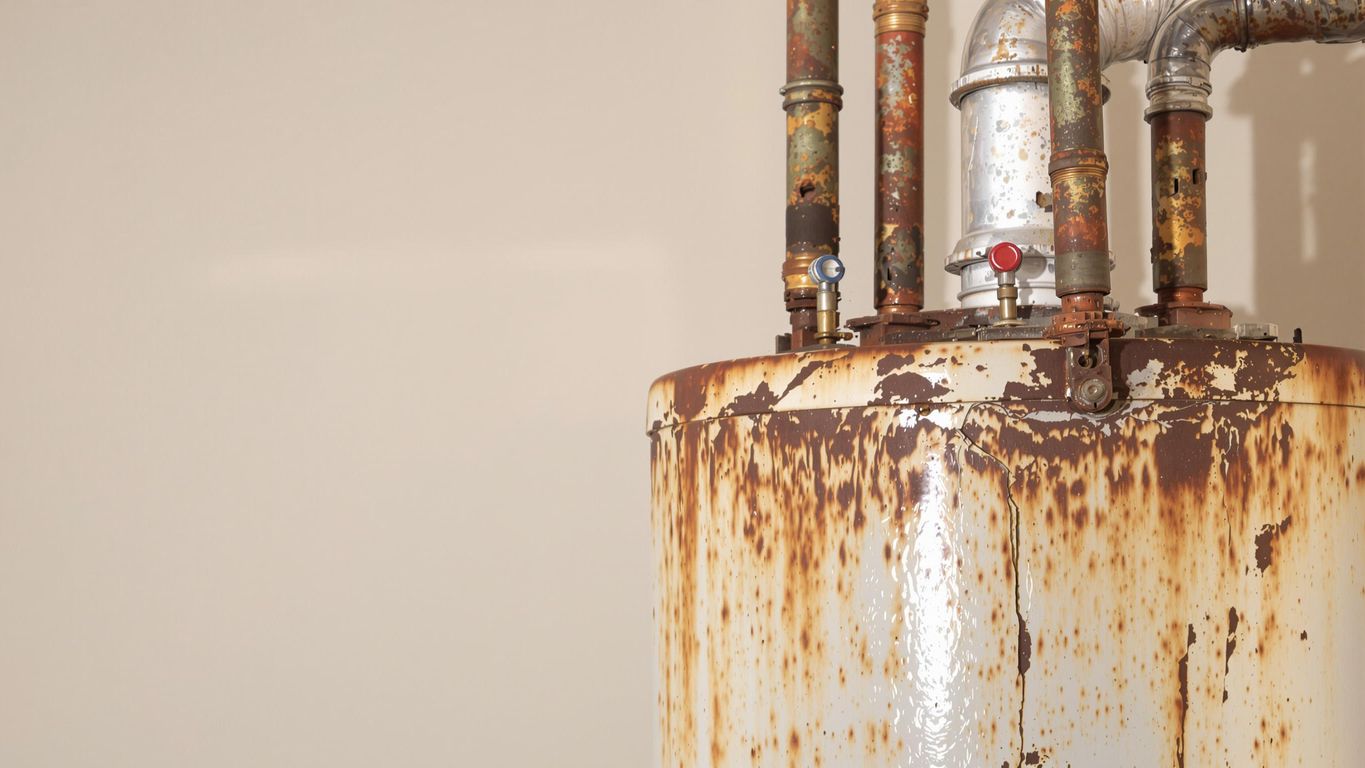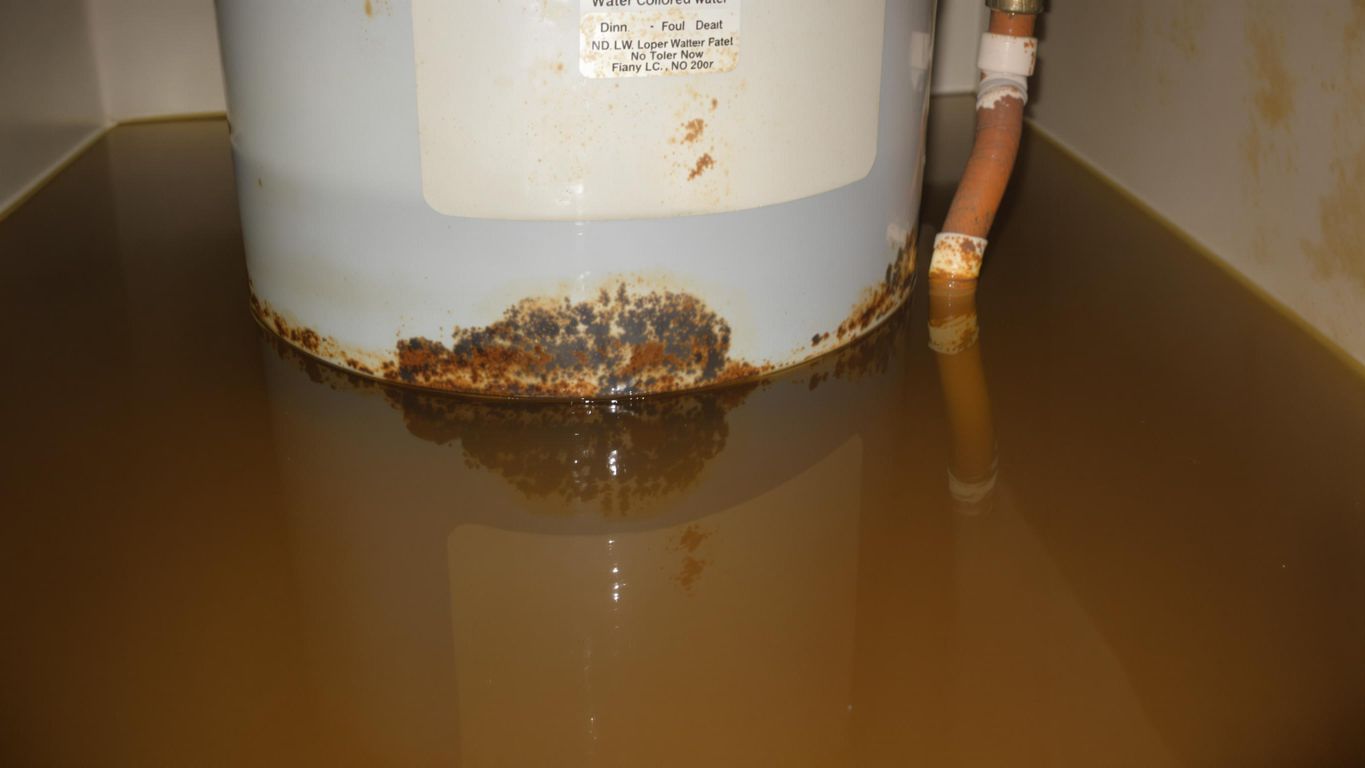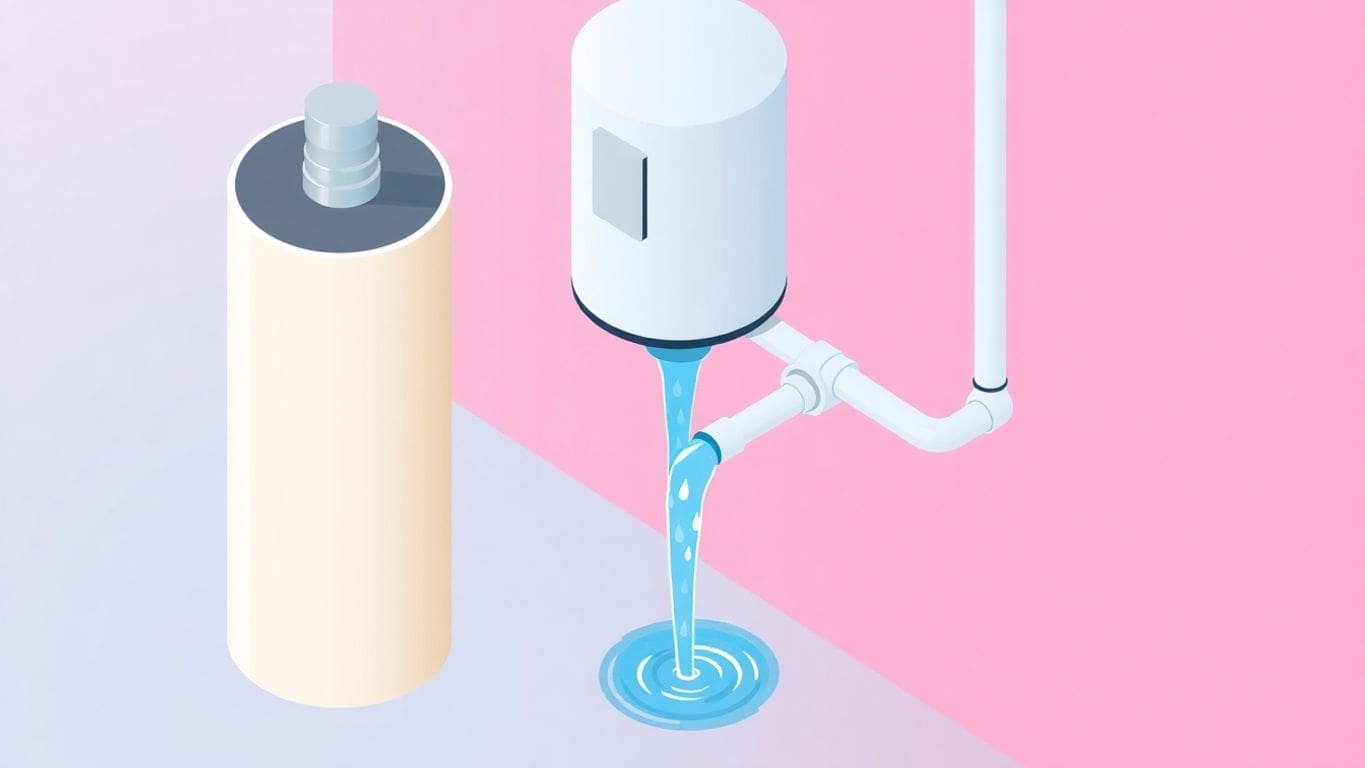
Water heaters are one of those things you don’t think about—until they stop working. Suddenly, you’re stuck with cold showers and a pile of dishes that won’t get clean. Knowing when to replace your water heater can save you from unexpected breakdowns and costly repairs. Let’s look at the key signs that might mean it’s time for a replacement.
Water heaters don’t last forever. Most traditional tank-style heaters have a lifespan of about 10–12 years. If your heater is getting close to or past this age, it’s time to start thinking about a replacement. Older heaters often become less efficient, meaning they’ll use more energy to heat the same amount of water. Here are some age-related signs:
Repairs can be costly, and they add up quickly. If you’re constantly fixing your water heater, it’s a sign that the unit is nearing the end of its life. Think about this: If a single repair costs more than $450 and your water heater is older than 5 years, replacing it might save you money in the long run.
Here’s a simple way to decide:
| Repair Cost | Water Heater Age | Action to Take |
|---|---|---|
| Less than $200 | Under 5 years | Repair is worth it |
| $200–$450 | 5–10 years | Consider replacement |
| Over $450 | Over 10 years | Replace immediately |
One of the most obvious signs is running out of hot water faster than usual. If your family suddenly can’t get through morning showers without someone ending up cold, your heater might not be keeping up anymore. This could be due to:
If you’re constantly adjusting your routine to deal with limited hot water, it’s time to evaluate whether your water heater can still meet your needs.
Pay attention to these signs, and don’t wait until your water heater fails completely. A little preparation now can save you from a big headache later.

If your hot water looks rusty or has a metallic taste, it’s a sign of trouble. Rusty water often means your water heater tank or the pipes connected to it are corroding. Corrosion weakens the tank and can lead to leaks. If you notice rusty water only when using hot water, the issue is likely with your heater, not your plumbing system.
Take a close look at the outside of your water heater. Rust spots or flaking paint on the exterior are red flags. These are signs that moisture has been sitting on the tank, causing it to corrode. Over time, this can result in structural damage, making the tank unsafe to use. Ignoring this could lead to a sudden tank failure.
Rust doesn’t just damage your water heater—it can also affect your water quality. Drinking or bathing in water contaminated with rust particles can pose health risks, especially for people with sensitive skin or weak immune systems. If rust issues are persistent, replacing your water heater might be the safest option.
Don’t let rust take over your water heater. Addressing it early can save you from more expensive repairs or replacements down the line.
Noticing water pooling around your water heater? That’s a red flag. Even small puddles or dampness near the unit could mean trouble. Leaks rarely fix themselves—they only get worse over time. Here’s what to watch for:
Ignoring a leak can snowball into bigger issues. Here’s what could happen:
A small leak today can lead to a flooded basement tomorrow. Always take leaks seriously and act quickly.
Sometimes, a leak is more than just a minor issue. If the water heater’s tank itself is leaking, replacement is often the only option. Why? Because the tank can’t be patched or repaired in most cases. Here’s when you should consider immediate action:
When in doubt, call a professional plumber. They’ll confirm if a repair is possible or if it’s time to replace the unit entirely.
If your water heater starts making loud rumbling or banging noises, it’s not just annoying—it’s a red flag. These sounds often mean sediment has built up inside the tank. Over time, minerals in the water settle to the bottom and harden. When the heater works, the sediment shifts, causing the noise. Ignoring this can wear out your heater faster.
Sediment isn’t just noisy—it makes your water heater less efficient. Here’s what to watch for:
Flushing the tank once a year can help prevent this buildup. It’s a simple way to extend your water heater’s life.
Not all noises are equally bad, but some mean your water heater is on its last legs. If the sounds get louder or more frequent, it might be time to replace the unit. A professional inspection can confirm whether the issue is fixable or if a new heater is the better option.
Don’t wait too long to address strange noises. A small problem today could turn into a costly replacement tomorrow.
As water heaters age, they become less efficient. This means they use more energy to heat the same amount of water. An aging heater can make your utility bills rise significantly. If your heater is over 10 years old, it might be time to think about replacing it. Older systems often struggle to maintain performance, wasting energy in the process.
Here are some common signs that your water heater isn’t running efficiently anymore:
Sometimes, the cost of constant repairs adds up. Here’s a quick comparison to help you decide:
| Situation | Action Needed | Estimated Cost |
|---|---|---|
| Minor issue, rare repair | Repair | $100-$300 |
| Frequent breakdowns | Replace | $800-$2,000+ |
| Over 10 years old | Replace | $800-$2,000+ |
If you’re spending more on repairs than the heater is worth, replacement is the smarter choice.
In the long run, a new, energy-efficient model can save you money on bills and reduce headaches from constant fixes. Always weigh the costs and benefits carefully.
Have you noticed your shower going from warm to cold without warning? This might mean your water heater is struggling to keep up. Inconsistent water temperatures are a common sign that something isn’t working right. It could be an issue with the thermostat, the heating element, or even sediment buildup in the tank.
If you’re running out of hot water faster than before, it’s more than just an inconvenience. A water heater that can’t meet your household’s needs may be wearing out. This could happen because of a reduced tank capacity due to aging or internal damage. Nobody wants to start their day with a cold shower!
Your water heater’s thermostat controls the temperature, while the heating element actually warms the water. If either of these parts fail, you’ll notice it right away. A faulty thermostat might cause water to be too hot, too cold, or fluctuate. Replacing these components might fix the problem, but if your heater is old, it could be time for a replacement.
A water heater that can’t deliver consistent hot water isn’t just annoying—it’s a sign that bigger problems might be around the corner. Don’t ignore it.

If your hot water smells bad, it’s a clear sign something is wrong. A "rotten egg" smell often means bacteria is growing inside your water heater tank. This happens when the tank isn’t cleaned regularly or the anode rod (a part designed to prevent rust) isn’t working. Sometimes, the smell can also come from sulfur in the water supply.
Seeing rusty or cloudy water when you turn on the hot tap? That’s usually a sign of rust inside your water heater tank or pipes. Rusty water is a big warning sign that your heater might be close to failing. In some cases, sediment buildup in the tank can also cause water to look dirty or have particles floating in it.
Discolored or smelly water isn’t just unpleasant—it can also be unsafe. Bacteria in the water can lead to health issues, and rust particles can damage your plumbing. If you notice these problems, it’s important to act quickly to protect your home and your family.
Most water heaters don’t last forever, but their lifespan can vary depending on the type. A traditional tank water heater typically lasts 8 to 12 years. On the other hand, tankless water heaters can last up to 20 years with proper care. Keep in mind, these numbers depend on how well you maintain your unit and the quality of the water in your area.
| Type of Water Heater | Average Lifespan |
|---|---|
| Tank Water Heater | 8-12 years |
| Tankless Water Heater | Up to 20 years |
If your water heater is nearing the end of its expected lifespan, it’s a good idea to start planning for a replacement. Waiting until it fails could leave you without hot water when you need it most.
Taking care of your water heater can help it last longer. Here are a few simple tips:
By staying on top of these tasks, you can add a few extra years to your water heater’s life.
Sometimes, even with good maintenance, age catches up to your water heater. If your unit is over 10 years old and showing signs of trouble—like leaks, rusty water, or inconsistent heating—it’s probably time to replace it. Older heaters can also cost more to run, making a newer, energy-efficient model a smarter choice.
A proactive approach can save you from unexpected breakdowns and costly emergency repairs. If your water heater is over 15 years old, it’s time to seriously assess its condition. Consider replacing your old unit to avoid bigger problems down the line.
When your water heater starts acting up, it can be tempting to just call for a quick repair. But sometimes, those fixes start to add up. If the cost of a single repair is over $450 and your heater is more than five years old, it might be time to think about replacing it. This is especially true if you’ve already had multiple repairs in the past year. A good rule of thumb: if repair costs are more than half the price of a new unit, replacement is the smarter choice.
Are you constantly calling your plumber? If you’ve had to fix your water heater more than twice in the past year, that’s a red flag. Frequent repairs don’t just drain your wallet—they also signal that your heater is nearing the end of its life. Look for these signs:
These issues often mean your water heater is struggling to keep up and might not be worth saving.
Replacing a water heater isn’t cheap, but it’s an investment in your home’s comfort and safety. Start by researching the cost of new units. Tank water heaters typically cost less upfront than tankless models, but tankless options can save you money on energy bills in the long run. Make sure to factor in installation costs too. Setting aside a small amount each month for home repairs can make this expense easier to handle when the time comes.
Don’t wait for a total breakdown. Planning ahead can save you from the hassle of being without hot water when you need it most.
For more guidance on when to replace your water heater, check out our comprehensive advice on evaluating repair costs and energy efficiency.
Sometimes, it’s hard to tell if your water heater needs a simple fix or a full replacement. That’s where a plumber comes in. If you notice leaks, rusty water, or inconsistent heating, it’s time to call a professional. They can quickly figure out what’s wrong and save you from guessing.
Here are a few key moments to call a plumber:
A professional inspection is straightforward. The plumber will:
This process usually takes less than an hour. Afterward, they’ll explain what they found and recommend the next steps. Sometimes, a small repair can add years to your heater’s life. Other times, they might suggest a replacement if the damage is too severe.
Getting expert advice can save you money and hassle. Plumbers know what to look for and can spot small problems before they turn into big ones. Plus, they can help you decide whether to repair or replace your heater based on:
"A professional inspection can give you peace of mind and help you avoid costly surprises down the road."
Most water heaters last about 8 to 12 years, depending on the type and how well they’ve been maintained.
Look for rust-colored water, leaks around the tank, unusual noises, or inconsistent water temperature.
Sometimes repairs can fix the issue, especially if the heater is relatively new. However, frequent repairs or a heater over 10 years old may mean replacement is better.
Noises like rumbling or banging often happen because of sediment buildup in the tank, which can reduce efficiency and cause damage over time.
Rusty water could mean the inside of your water heater tank is corroding, which may lead to leaks or failure soon.
Small leaks can sometimes be repaired, but if the tank itself is leaking, it usually means the heater needs to be replaced.
Yes, older water heaters often become less efficient, leading to higher energy bills over time.
Yes, a professional can help you determine if your water heater can be repaired or if it’s time for a replacement.



